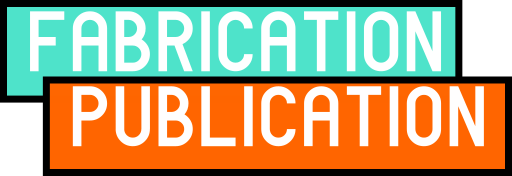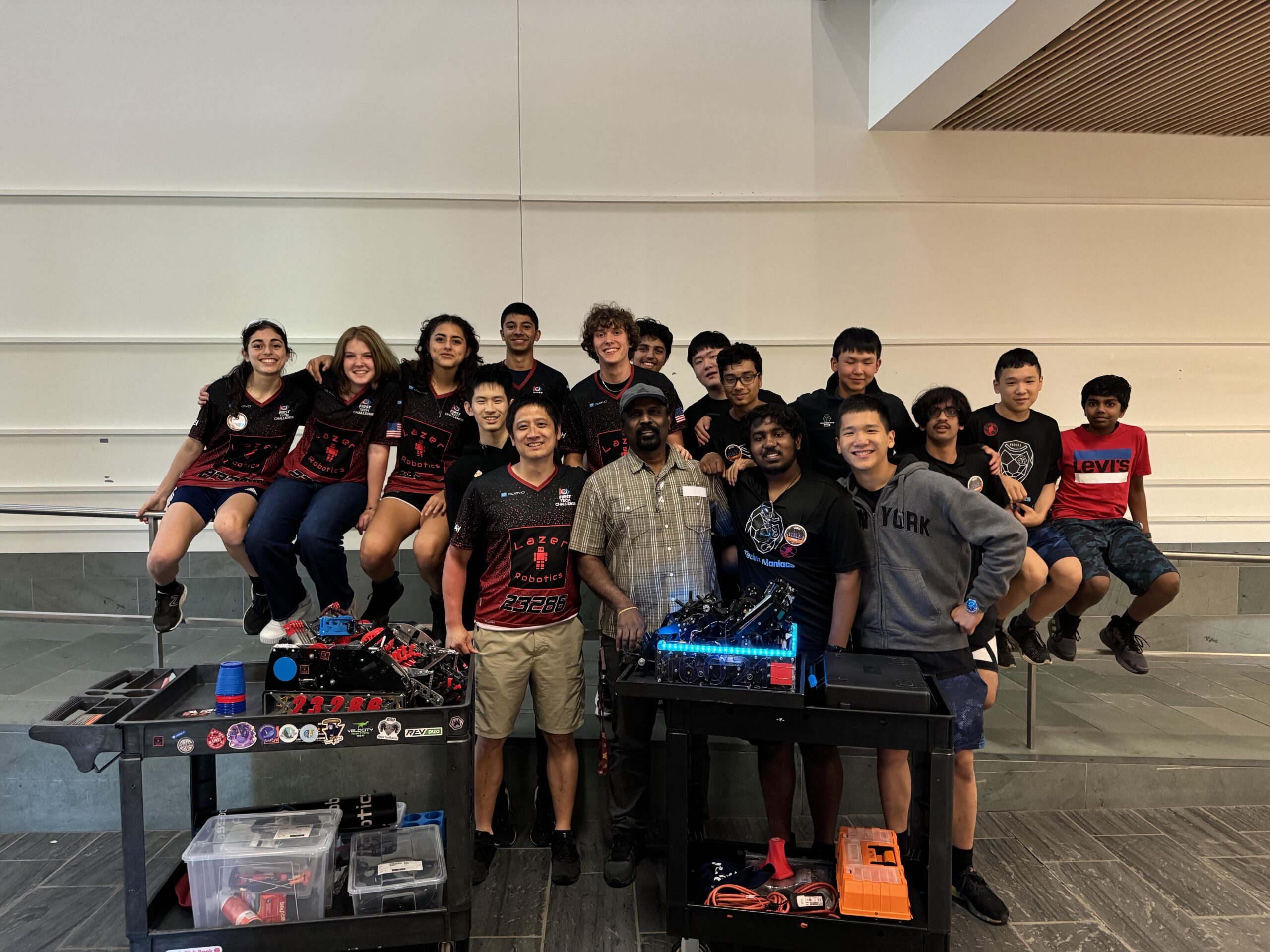Welcome to another Robot Review! In today’s review, we interview the Technomaniacs, a team which has won a lot of awards this year compared to last year! We talked to them a bit about these awards, how they got them, about team philosophy, and more!
| FACT SHEET (as of October 21, 2024): | |
| Team Name and Number: | Technomaniacs, 16021 |
| Team Website: | technomaniacs.org |
| Team Social Media: | YouTube |
| Team Location: | Acton, Massachusetts, United States |
| Team Affiliation (Community/School): | Community |
| Team Rookie Year: | 2018-19, Rover Ruckus |
| Team Size: | 9 |
| Team Mascot: | None yet, they’re thinking about it… |
| Team Awards: | Innovate (2023, Local and States) Winning Alliance (2023, Local and States) Finalist Alliance (2023, Local) Robot Design Award (2023, Local) Think (2022, Local and States) |





Zach: Hello, I’m Zach and I’m the person who reached out to you, I’m from Overclocked 22059, and I believe we met at the Ryken Robobowl last season and I do mainly marketing and programming.
Malone: Hello, I’m Malone also from Overclocked, and I do mostly marketing, outreach, and building.
Lucas: Hello, my name is Lucas and I am also on Overclocked and I do marketing and outreach.
Rick: I’m Rick and I’m the team captain for the Technomaniacs 16021.
Z: Thanks for coming and the reason why all three of us are here is because this is our first formal interview so we’re noting things that we could improve.
Z: Do you participate in FIRST Tech Challenge yourself, or are you a mentor/coach for your team?
R: I am a senior, so I’m 17 right now.
M: Do you do a bit of everything, or are you specialized?
R: I do everything from building, coding, and also outreach and getting sponsors and stuff.
Z: One thing I noticed about your submission was that you listed your goals as “Reliability, adaptability, and simplicity.” Could you explain what you meant by that?
R: So reliability is pretty self-explanatory. We just want the robot to work every single time without having to worry too much. Simplicity is not overcomplicating things that don’t need to be overcomplicated. Adaptability is for autonomous situations and even generally as a team, being able to adapt in case of something unexpected.
M: What measures have you been putting in place to achieve these?
R: We haven’t really put any measures into place; it’s more of an underlying philosophy when we are designing a mechanism. If someone wants to call out if something is over-complicated for no reason, we would say that and when we are coding the robot or doing logistics before a qualifier to make sure everything is in check.
Z: How did you make your drivetrain?
R: For the past few years, we have been using parallel plate drivetrains so basically CNCing the outer plates and then using goBILDA channels, but this year we have a completely custom frame, so all of the parts are either 3D printed or cut on a CNC machine
M: Have you tested that out yet, out of curiosity?
R: Yeah, we went to Robot In 3 Weeks, where we could do stuff there, so I would say that is successful. We also tested it during the off-season.
Z: Why do you do Robot In 3 Weeks?
R: Robot in 3 weeks is very useful as a hard deadline because we have a month or more before our qualifier right now. We have not done that much because we are all busy, but having a competition means you have to do something and have something for later. Also, Robot In 3 Weeks in my opinion is a great way to see other teams in your region because you can see online what a lot of different teams are doing.
Z: We asked what your team’s biggest challenge with your robot was, and you said reliability. Based on your previous answer, that is important to you, so I’m curious about what you are doing to change that.
R: Reliability is hard to achieve because something always goes wrong. You’re constantly improving on it. In our first year of FTC, seven years ago, we would have the wheels falling off of the robot, and then the next year, that didn’t happen, but then the following year, we would have the strings break on the linear slides. I think last year was pretty good for reliability, but I think it’s just an ongoing quest to make sure everything in your robot is reliable, so that’s why I put that down as the hardest challenge.
Z: You put down determination as something you excel at, could you elaborate on that?
R: I think that goes back to my point earlier about having an event to work towards, so I think that the reason why that’s effective for us is because of our determination so if we have a deadline we will do anything possible to achieve that deadline, if it is an event deadline. So if we are going to an event, we are determined to have something to show for it. But that does not go hand in hand with dedication which I would define as working consistently.
M: As a community team, do you have tips or strategies for getting sponsors?
R: Historically, we haven’t really had many sponsors, and last year we had two which was the most that we have had, but something that has helped us get sponsors was performing well because then you can have something to show them. Also registering as a nonprofit is very helpful, you can use hack club which is a nonprofit organization that lets robotics teams and stuff register under them so that way you can say you’re a nonprofit and so your sponsors get tax incentives.
M: How many sponsors do you have this year?
R: We have 5 sponsors and goBILDA because they give everybody 15% off, but we have them down this year because they have saved us a lot of money. This year our sponsors are Rockwell Automation because one of our mentors is an employee there. We have ACP Waterjet which is a waterjet company in Littleton and we asked them for parts last year because we wanted a lot of parts quickly and this year they gave us money. We also have Qualcomm which again we had a mentor that works there. And then, Onshape, there was an application available that we applied for over the summer. And then Haas, which has a grant that as long as you’re a nonprofit, you can get it pretty easily, you just need to give them a bunch of documentation.
Z: How involved were you with the coding?
R: I do most, if not all, of the coding for the robot.
M: What language do you use?
R: I use Java.
Z: Do you use Android Studio for the workplace or something else?
R: I use Android Studio.
Z: What libraries do you use for the code?
R: The two main libraries that I recall using last year were FTClib and Roadrunner.
M: What’s one piece of advice you would like to give to a new team?
R: I would say that it’s really a long game. You’re not going to do well in your first year unless you all have experience in engineering, like we took until last year to qualify for states, so don’t get discouraged if you don’t do well in your first season.
M: How many times on average would you say your team meets?
R: I’m not really sure because it fluctuates a lot, so anyone can come by and work. Last year, we would have time in between events. We would have a few weeks where no one came, and then for a couple of days, someone would come every day. This year, it’s less because all but two of our team members are seniors, so we are busy with college applications. However, after November 1st, we will most likely have a lot of attendance.
Z: So I guess that leads to a different question: does your team have a shop space?
R: Yeah, although it was just in my basement for previous years.
Z: You said that you won 3 Innovate awards in previous seasons, can you share an example of what you won one of those over?
R: I’m not really sure, the judges really liked the LEDs on our robot all three times which would communicate to the driver.
Z: When did you first use LEDs?
R: Our December qualifier was the first time we got the award because of them but we first used them in ULTIMATE GOAL.
M: Have you been using them consistently since ULTIMATE GOAL?
R: Nope, we only used it for ULTIMATE GOAL and the year after that. For ULTIMATE GOAL, we used it because our lighting was terrible. Last year, it was to signal what pixel the robot had and also to know how many pixels there were in the robot.
M: Would you say that you have a favorite challenge?
R: Definitely ULTIMATE GOAL. First off, we were shooting rings, which everyone likes, and secondly, it was during COVID, and so with online school and lockdown, we would just do a lot of FTC stuff, and we did well that year. I think we got 4th or 5th, and I think if I didn’t do well that year I might not have kept doing it.
Z: One more thing. You provided an interesting response for why you participated in FIRST Tech Challenge. You said you started because you loved building things and wanted to do robotics with your friends. Can you elaborate on that?
R: Yeah, I started FLL in 5th grade, specifically because I did legos all my life and liked them, so I mainly built. It was primarily having fun with my friends, but that was just a random team, and I didn’t like it because I am a very introverted person. So, instead of doing an FLL team for one year, I started an FTC team in sixth grade, and since then, I have done a lot of FTC.
Z: Are there any other notable things about your team that you would like to mention that we didn’t cover here?
R: One unique thing about our team is that we have been operational for seven years, and I was the team founder. I started in sixth grade, and because of that we have a lot of team history. Some people have been here since the founding and others who have no experience in robotics, so it has been interesting having that mix.
Z: Thank you for letting us interview you!


Leave a Reply